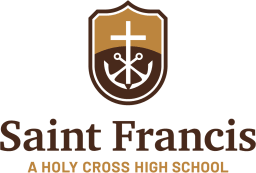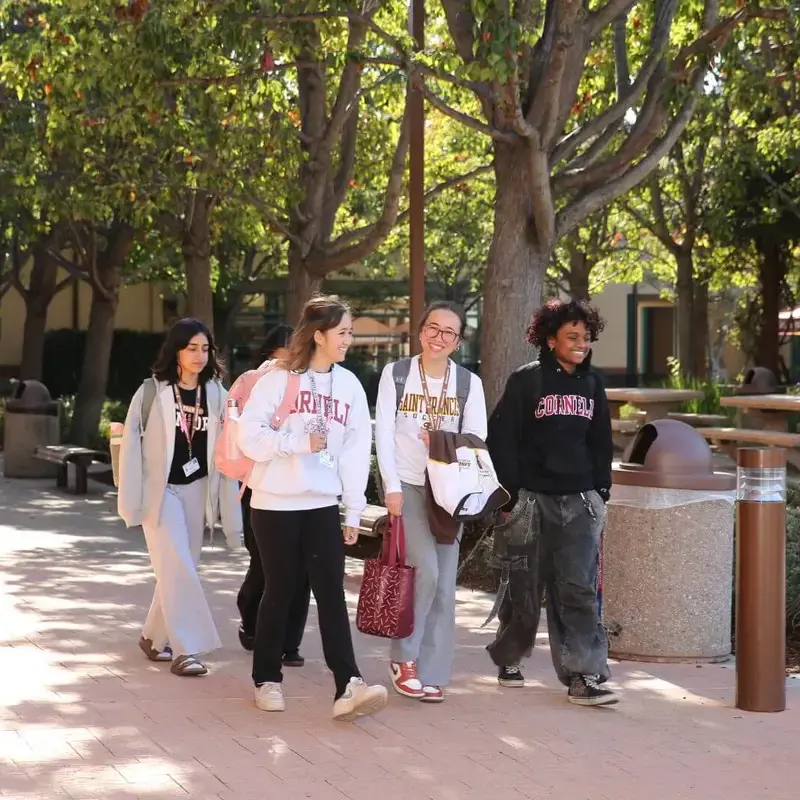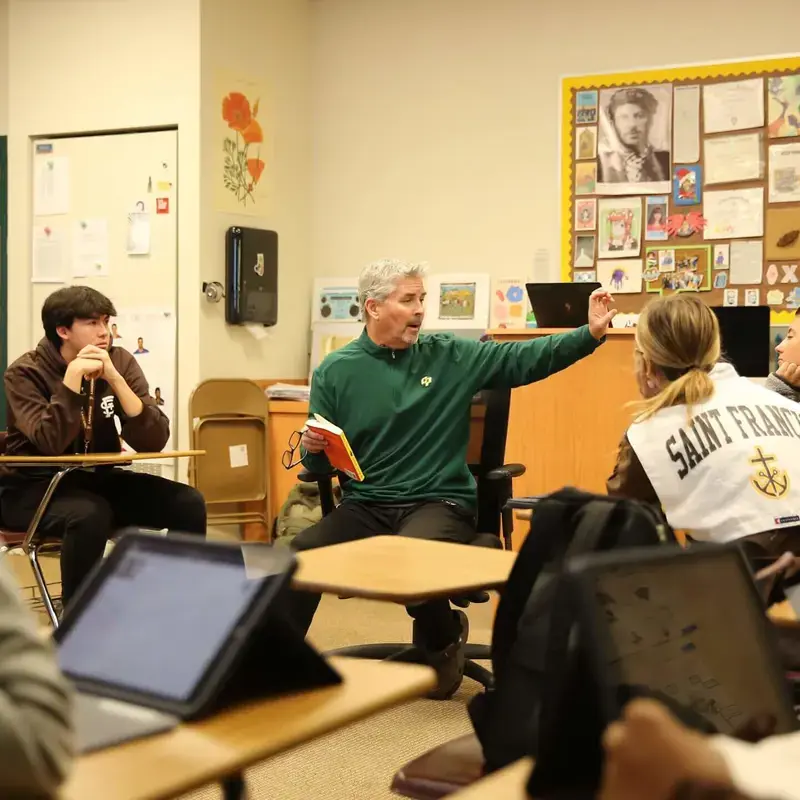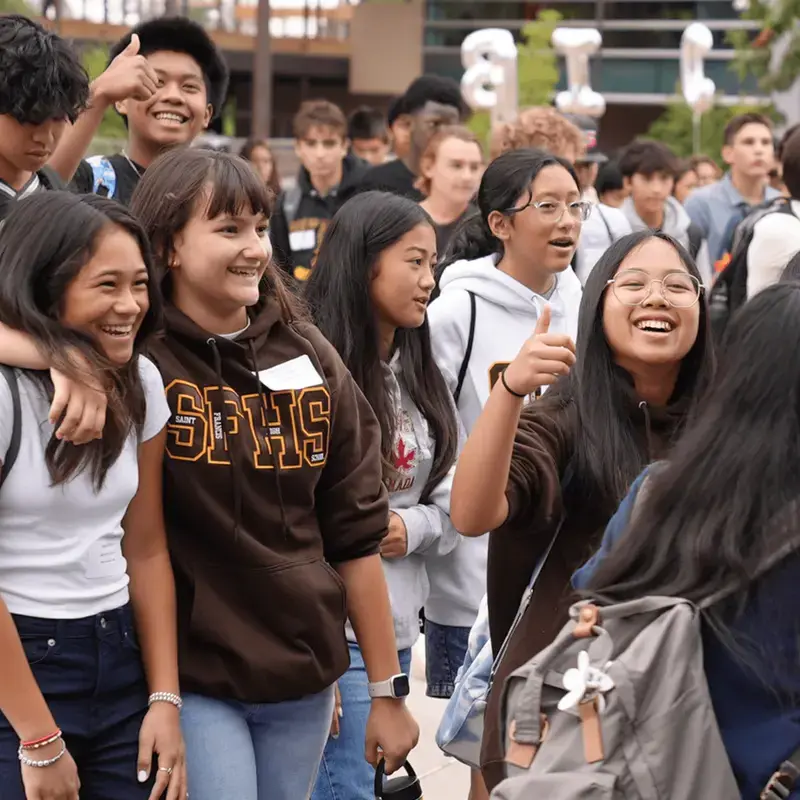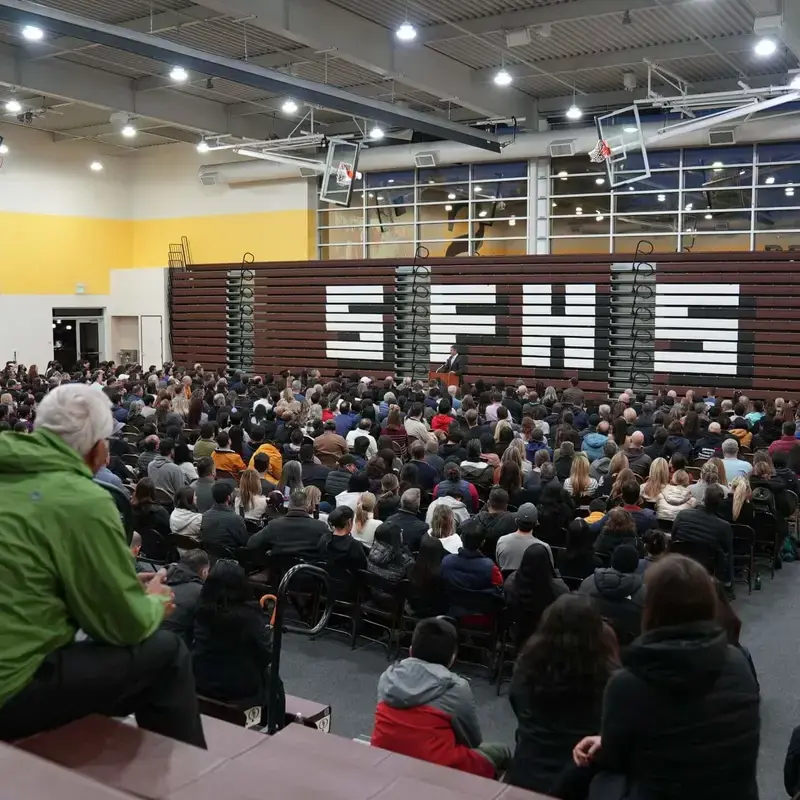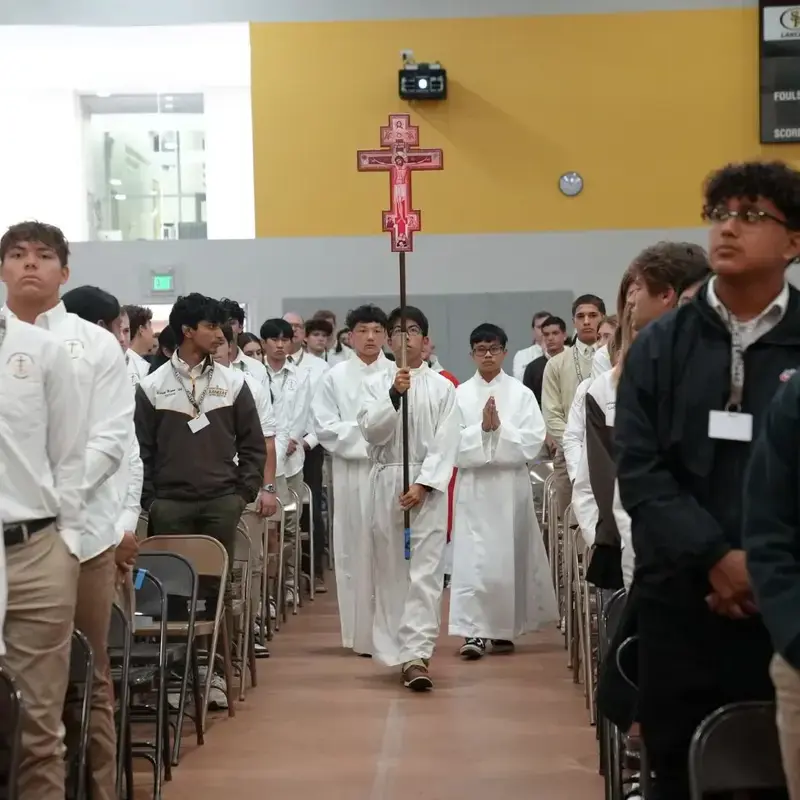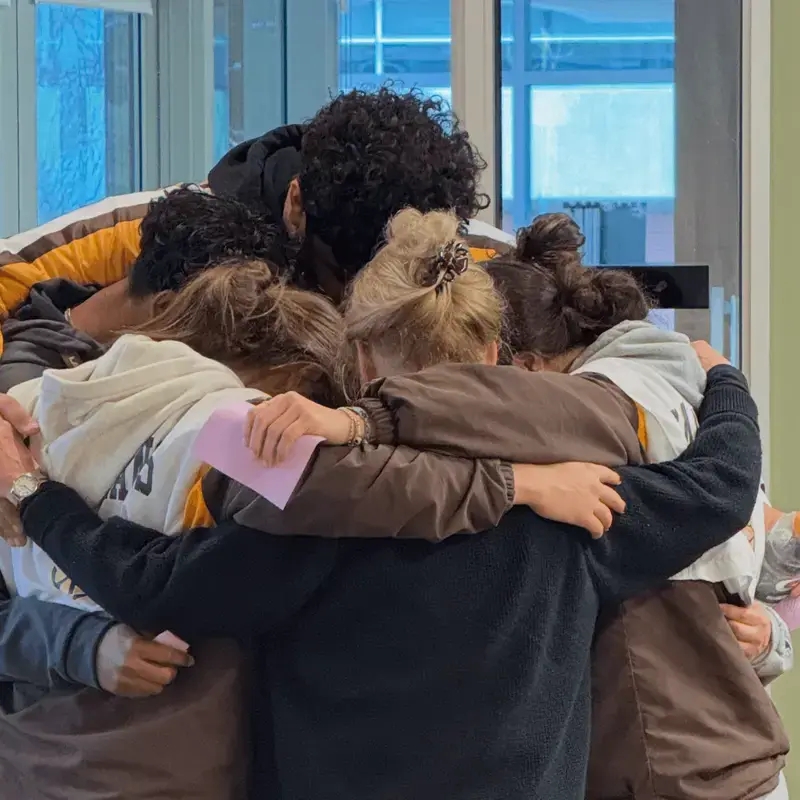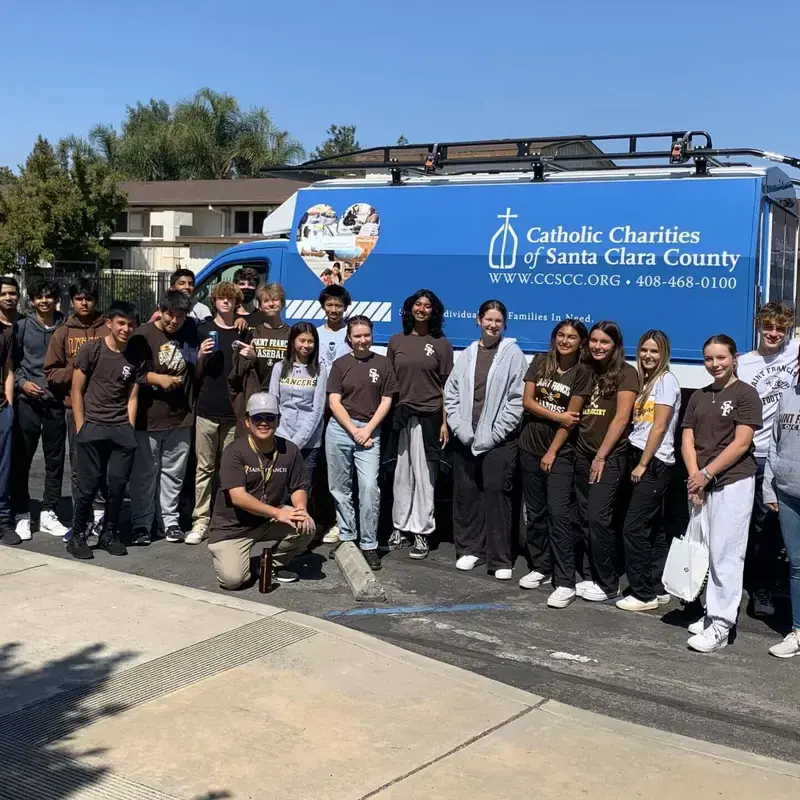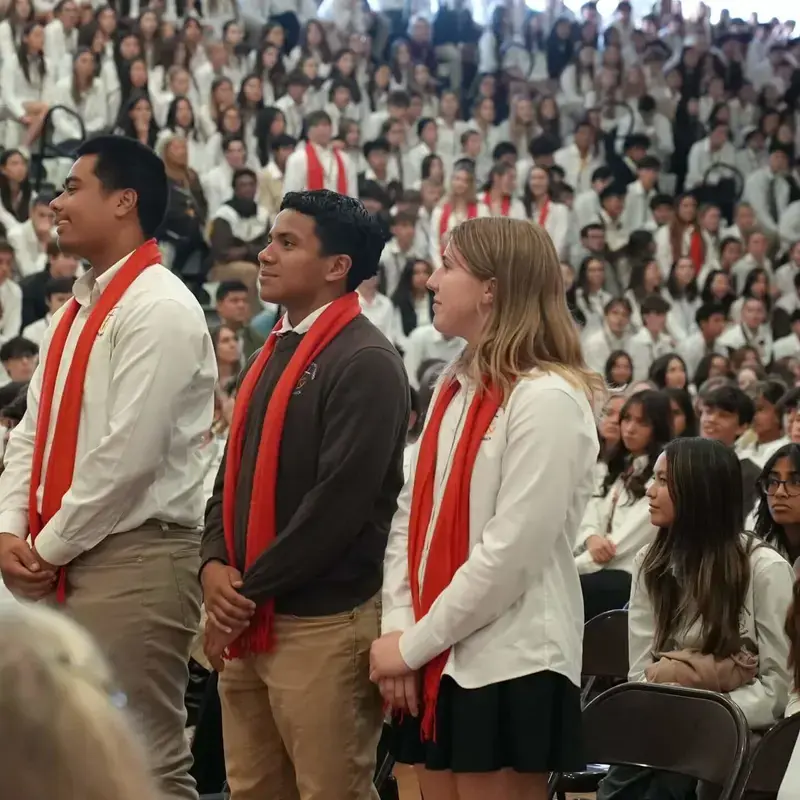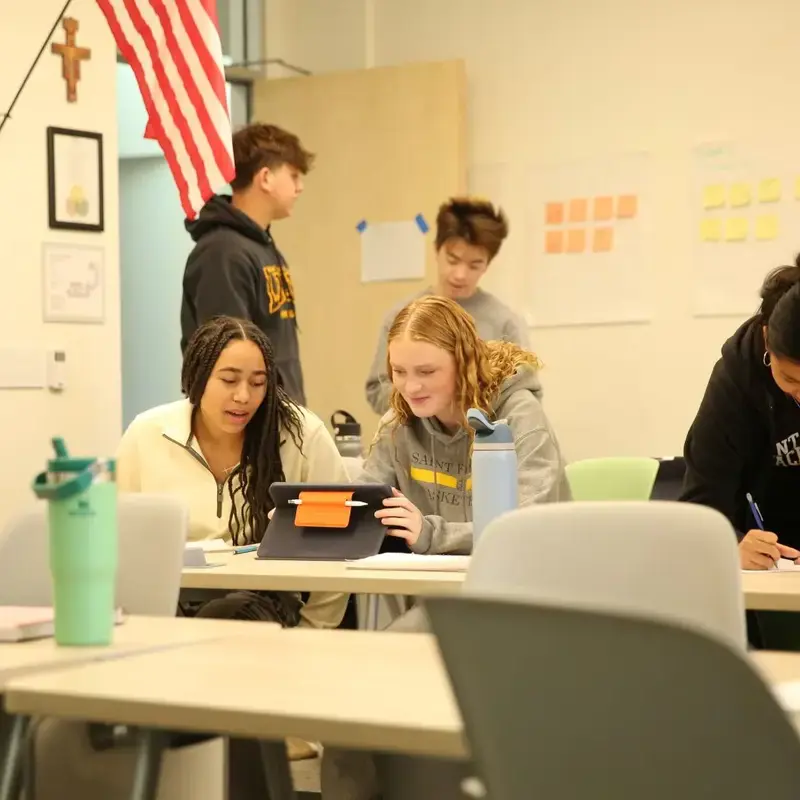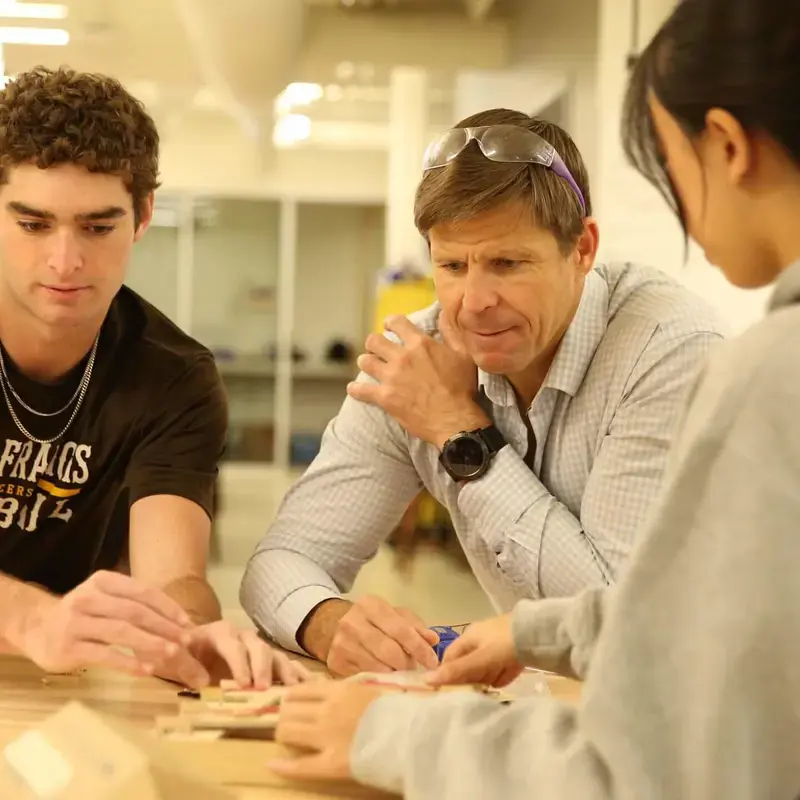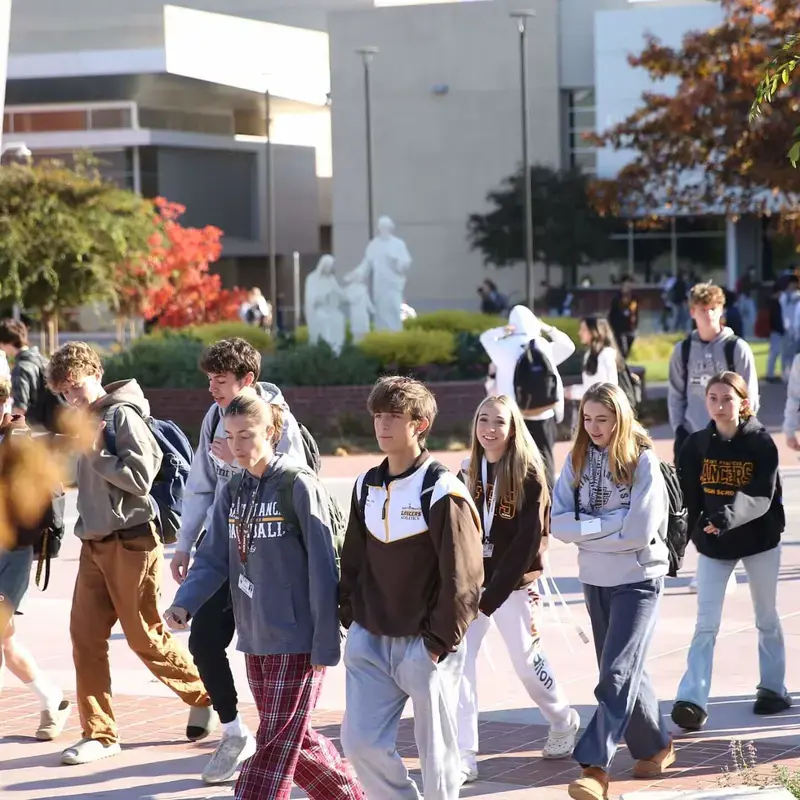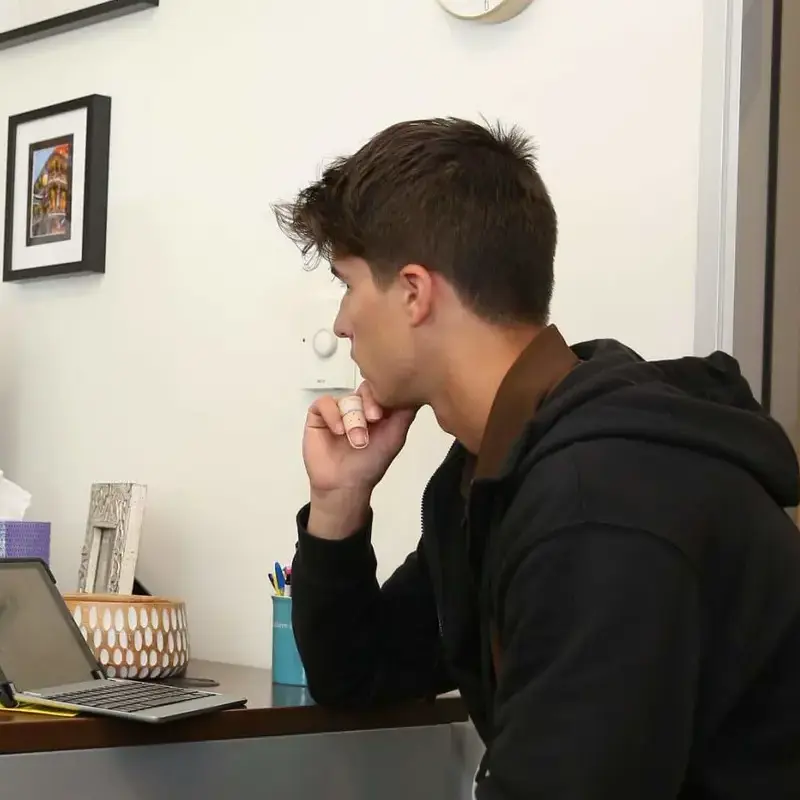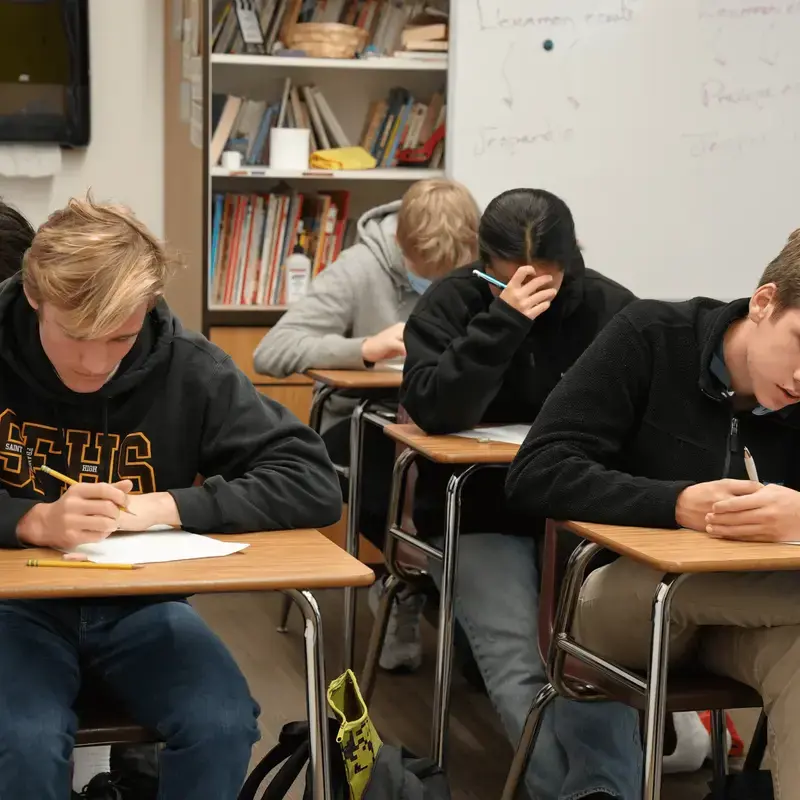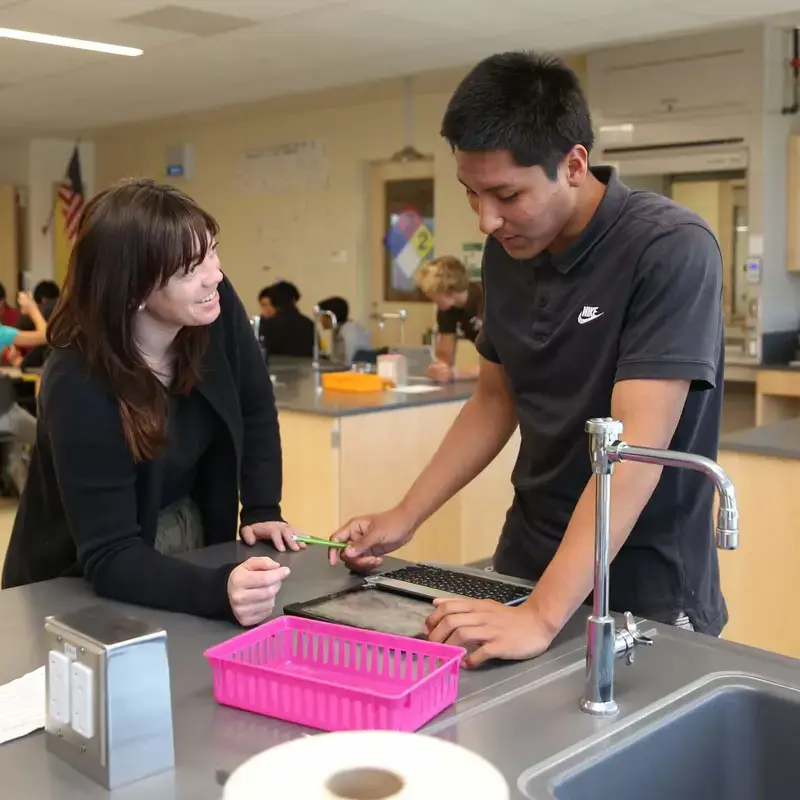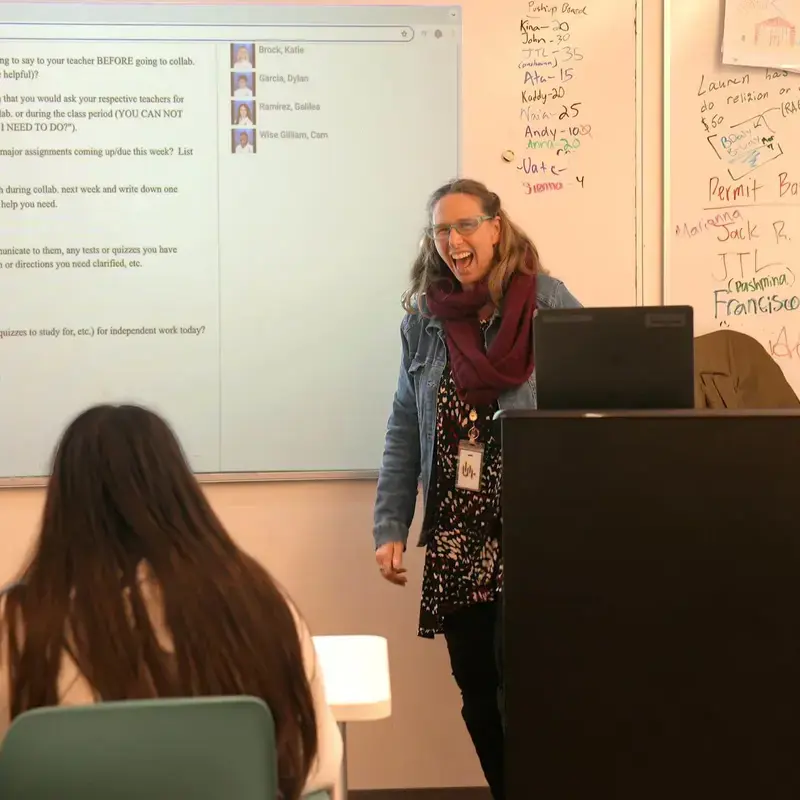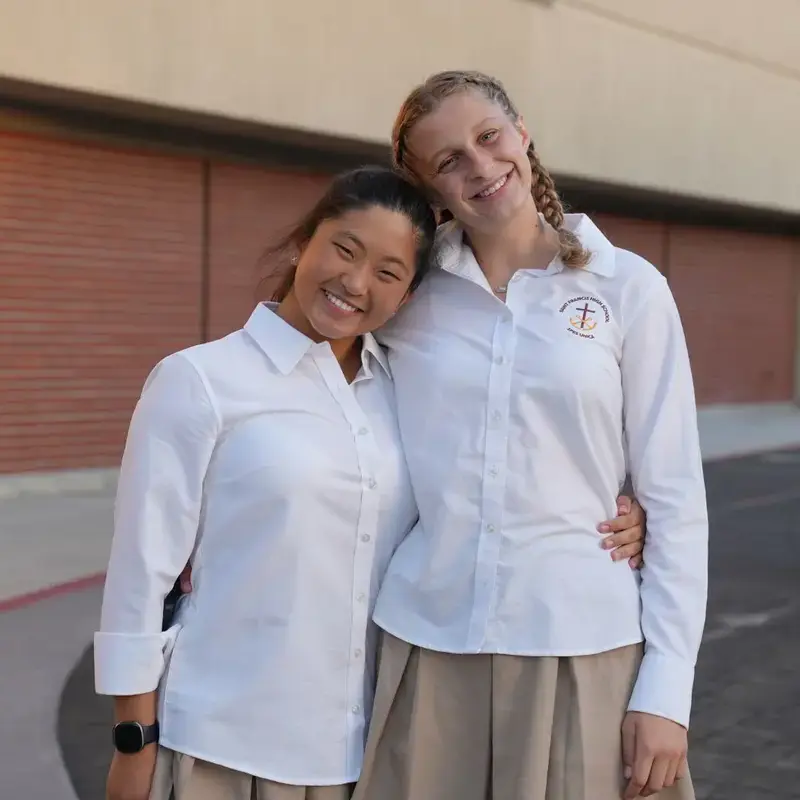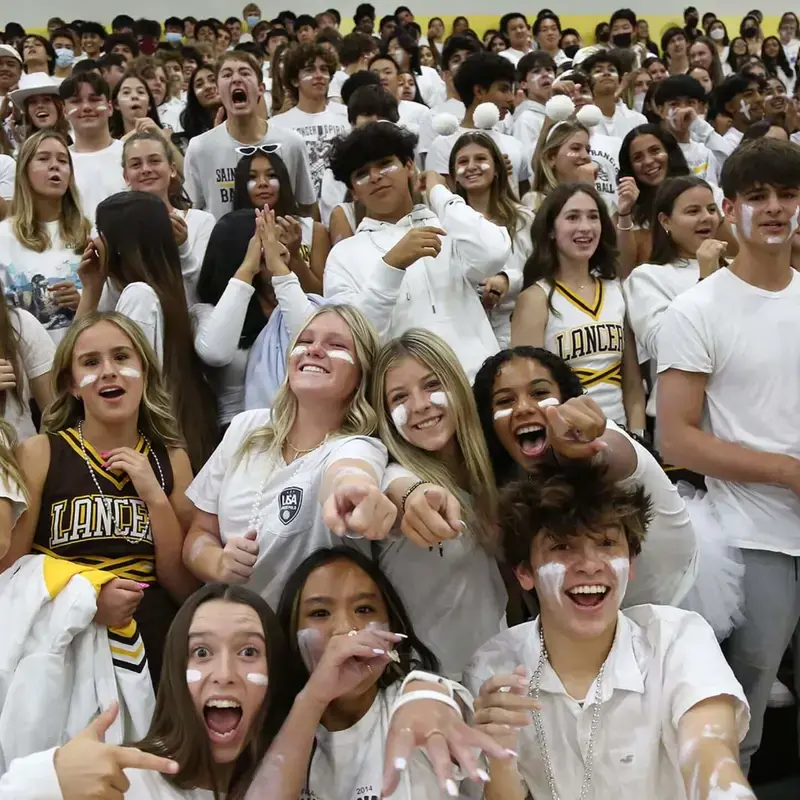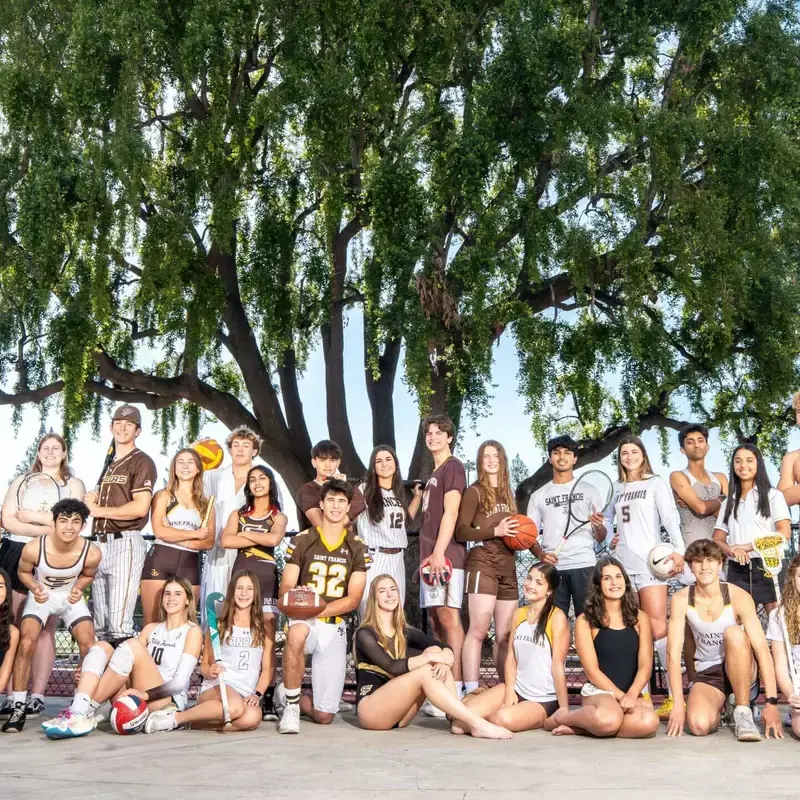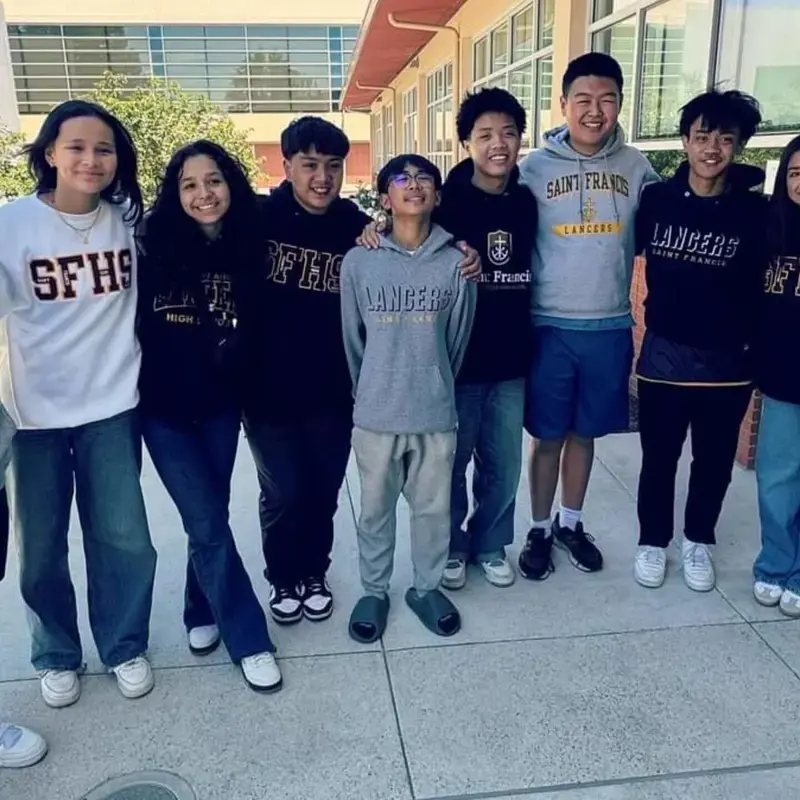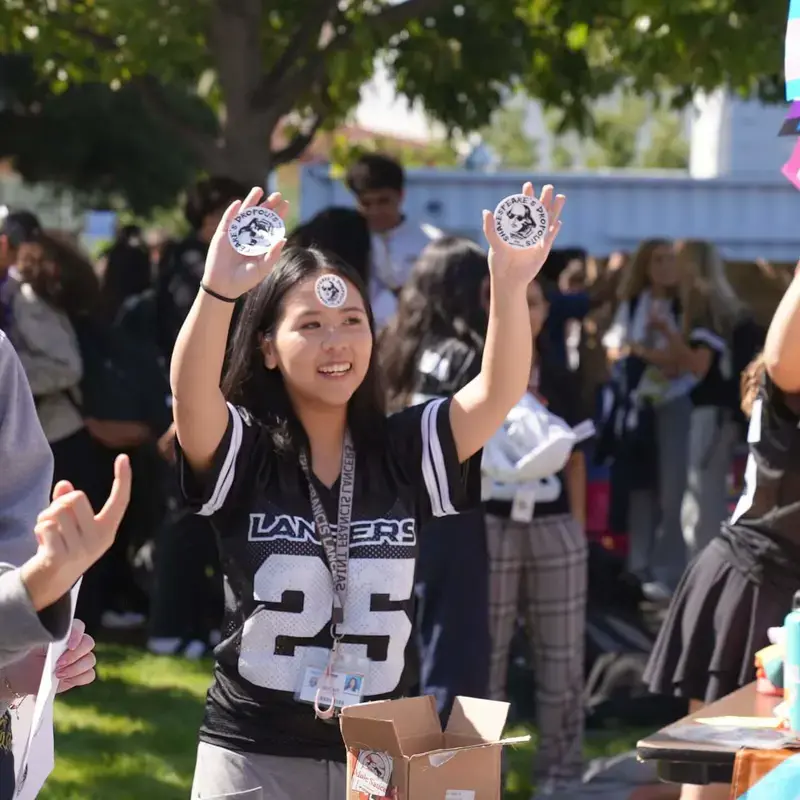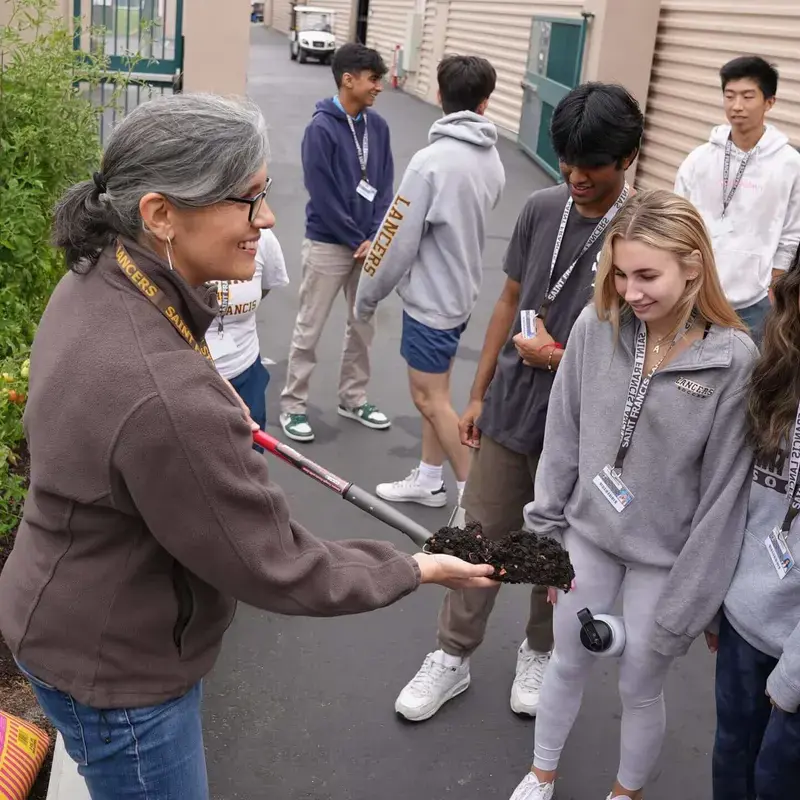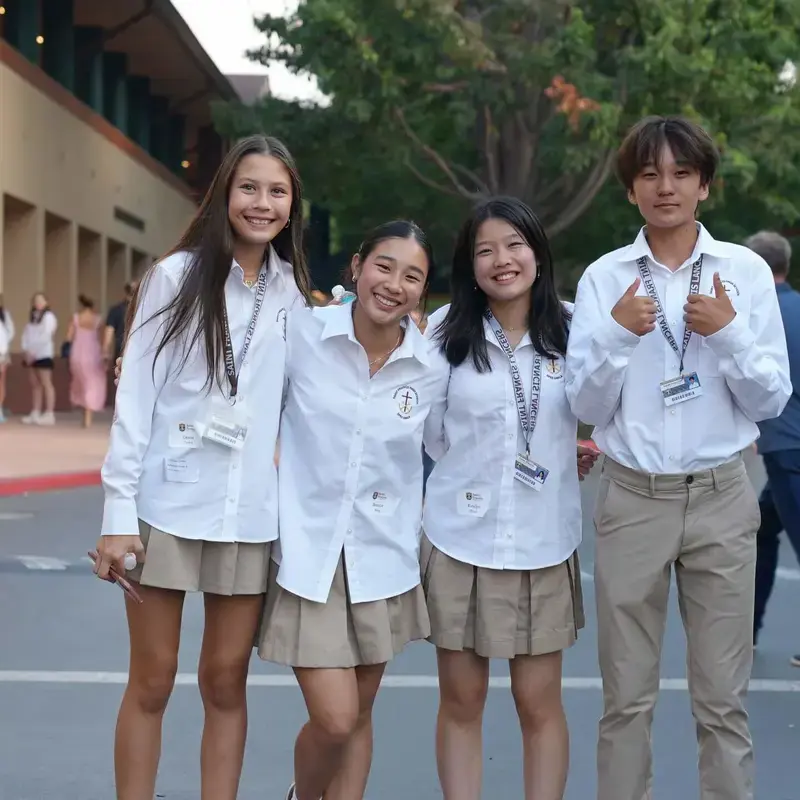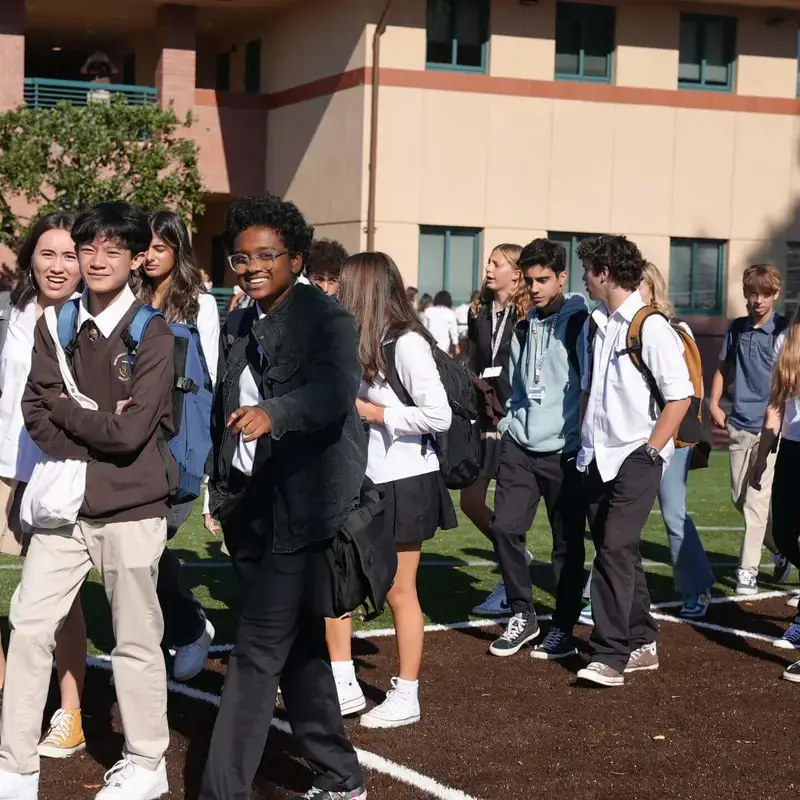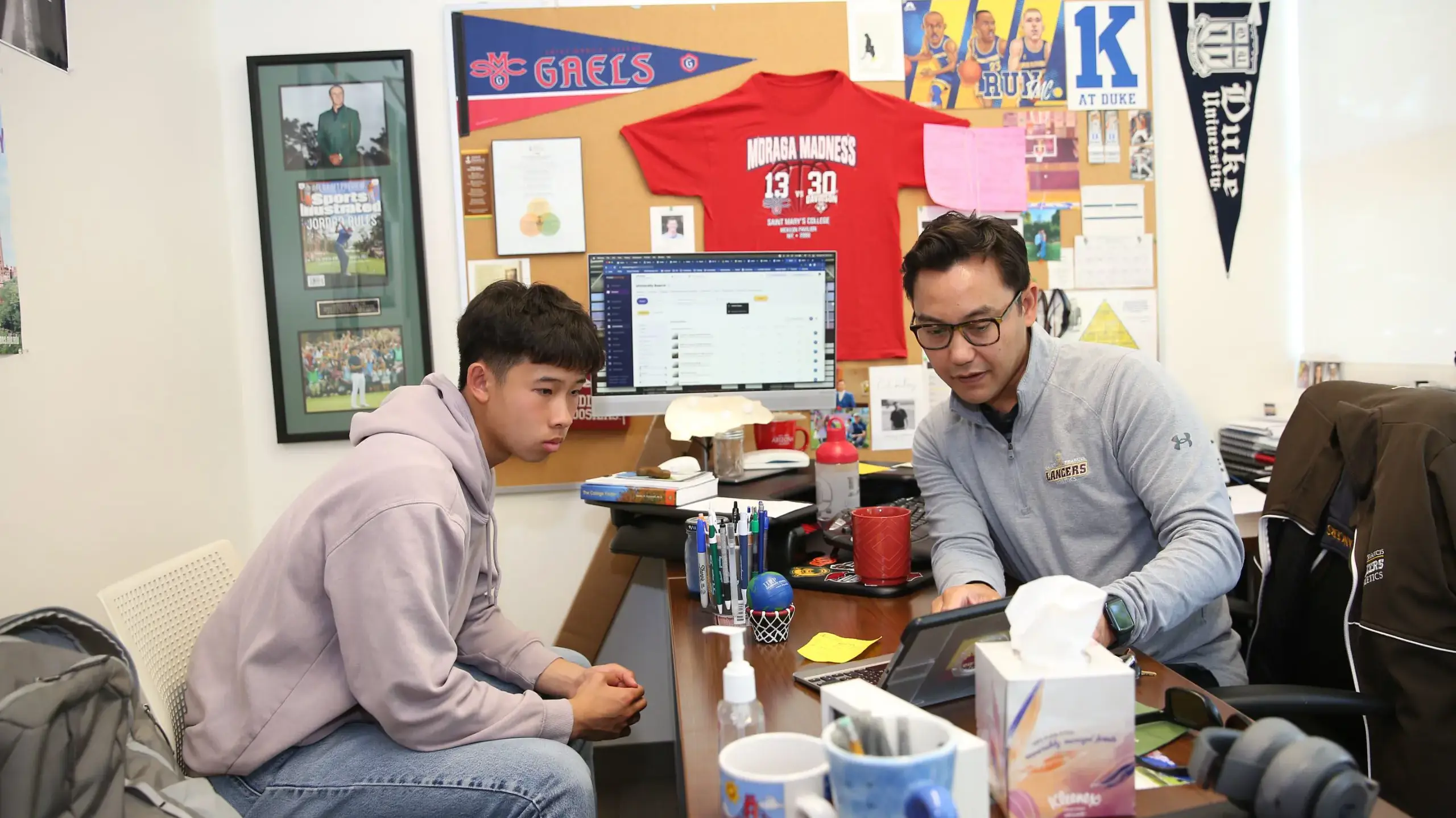Code of Conduct: AB 500
Assembly Bill 500 (AB500), effective January 1, 2018, adds section 44050 of the California Education Code, which requires schools to provide the section on employee interactions with students in its code of conduct, to parents and guardians of enrolled students on the School’s website.
As a school that has consistently followed strict protocols on hiring educators as well as adhering to clear expectations for their interaction with students, we welcome the opportunity to share with you our school policies. Below is a consolidation of policies from our educator handbook that deal with hiring, training, code of conduct, mandatory reporting and specific guidelines on situations of potential impropriety. These policies are also accessible on the parent and student portals.
Please know that our students’ safety is our top priority. We are committed to placing caring and respectful staff in our classrooms, offices, fields and courts. We understand the great gift of your children, and they are always at the forefront of everything we do.
In gratitude,
Katie Teekell ‘00
Principal
Excerpts From Our Educator Handbook
We are sharing with you some excerpts, highlighted in italics below, from our Saint Francis High School Educator Handbook that include details on our expectations for employees relative to interactions with students. Please know that this information has been in our handbook for many years and educators are required to review and acknowledge the handbook annually.
At the heart of our policies are intentions to take all precautions to keep our employees modeling and living the Holy Cross values. As Blessed Basil Moreau reminds us, “Our sublime, but difficult, mission should be fulfilled with that happy blending of gentleness and firmness, prudence and vigilance, which is the secret of all successful education.”
Employment Requirements
When an applicant intends to join our Saint Francis High School community we require a thorough review and training on code of conduct expectations.
In order to be employed by Saint Francis High School, an educator must complete the following:
- An application for employment.
- Background check (Live Scan fingerprinting clearance).
- TB certification.
- Protect God's Children Training, Harassment Prevention and/or Mandated Reporter Training.
- Agreement by signature to all state-mandated and school policies, including child abuse reporting, safety policy and driver safety rules.
Once an employee is hired, policies are provided that guide the employee on the use of social media in regard to communication with students.
Guidelines for Social Media “Friending”
Students, Alumni, and Parents
- No initiating or accepting “friend” requests from current students of any age, or former students under the age of 18.
- Use professional discretion when “friending” alumni 18 years of age and older. Keep in mind that many former students have online connections with current students.
- Educators are discouraged from “friending” parents of current or prospective students due to the inherent conflicts of interest that may arise.
Guidelines for Safeguarding
Furthermore, educators are not only trained on but required by law to act in the best interest of the student in suspicious situations.
All school employees are mandated reporters who are required, by law, to report all known or suspected cases of child abuse or neglect. Mandated reporters must not attempt to investigate whether the allegations are valid. If child abuse or neglect is reasonably suspected or if a student shares information with a mandated reporter leading him/her to believe abuse or neglect has taken place, the report must be made. No supervisor or administrator can impede or inhibit a report or subject the reporting person to any sanction.
To make a report, an employee must contact an appropriate local law enforcement or county child welfare agency. This legal obligation is not satisfied by making a report of the incident to a supervisor or to the school. An appropriate law enforcement agency may be a Police or Sheriff’s Department or County Child Protective Services.
The report should be made immediately over the telephone and should be followed up in writing. The law enforcement agency has special forms for this purpose that they will ask you to complete. If a report cannot be made immediately over the telephone, then an initial report may be made via email or fax.
Finally, SFHS employees are provided with specific situations to avoid in order to avoid the incidence of impropriety.
The following are expectations to establish boundaries and avoid the appearance of impropriety:
- Do not stay alone in a room with a student unless there is a window permitting others to view the room or the door is open.
- Do not allow students to become overly friendly or familiar with you. Students should never call teachers by their first names or nicknames.
- Do not engage in private correspondence with students. Always use your school email account when corresponding with students. If you receive personal communication from a student and the communication is not appropriate, keep a copy of the communication and inform your supervisor.
- Do not visit students in their homes unless their parents are present; do not invite students to your home.
- Do not transport students in your own vehicle.
- Do not take the role of a surrogate parent with a student; do not criticize a student’s parents to the student.
- Do not give students your home or cell phone number without the knowledge and permission of your supervisor.
- Do not hire students to work in your home without the knowledge and consent of your supervisor.
- Do not discuss your personal issues or problems with your students.
